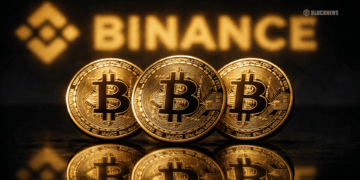In the cryptocurrency industry, the last year’s events have been highly chaotic. Crypto prices have tumbled, and some major players, including FTX exchange and Three Arrows Capital, have gone bankrupt. Amidst this uncertainty, a class-action lawsuit was filed against Coinbase Inc., one of the largest cryptocurrency exchanges in the world, which only added fuel to the fire.
As reported by Coinedition, the suit – Underwood et al. v Coinbase Global Inc, was filed in October 2021 in the Southern District of New York and accused Coinbase of facilitating the sale of 79 digital assets that were illegal contracts, as the platform was not registered with the United States Securities and Exchange Commission (SEC). The case was a harsh reminder of the growing scrutiny of the crypto industry and the increasing concerns over the lack of regulation in the space.
Coinbase and Consumer Protection
The customers sought to block Coinbase from trading tokens without registering as a securities exchange and sought damages for losses and transaction fees. During the investigation of the lawsuit, Coinbase Inc. revealed that it had received subpoenas and information requests from the SEC concerning its customer programs, including its listing processes for assets.
Despite the setback, Coinbase Inc. persevered, and on February 1st, 2023, the company won its case against the customers who accused it of facilitating the sale of unregistered securities. U.S. District Judge Paul Engelmayer of Manhattan dismissed the case, stating that the customers who transacted on Coinbase and Coinbase Pro could not show that the company sold or held title to the 79 tokens they traded.
Engelmayer wrote, “These activities of an exchange are of a piece with the marketing efforts, materials, and services that courts … have held insufficient,” as reported by Nasdaq.

Judge Engelmayer found that the platform did not actively solicit investments and that the terms of Coinbase’s user agreement “flatly contradict” allegations in the lawsuit. He added that Coinbase’s activities, such as describing the value proposition of the tokens and participating in promotions, were insufficient to qualify as an active solicitation. He further stated that Coinbase had no direct role in the transactions, despite promoting tokens and participating in “airdrops” of free tokens. The judge dismissed the claims with prejudice, meaning these charges cannot be brought again.
Victory – Confidence in the Industry
This latest development with Coinbase is a significant moment for the crypto industry. In light of the increased scrutiny it has faced over the past year, the dismissal of the lawsuit may give some exchanges the confidence to deal with the SEC on securities-related matters, as well as make them feel more at ease when dealing with the SEC and navigating the often-complex regulatory landscape of the crypto industry.
It remains to be seen what impact this decision will have on the industry, but the crypto industry continues to be a place of constant change and unpredictability. Nevertheless, Coinbase’s victory is a testament to the resilience and determination of the players in this exciting space. This industry will undoubtedly continue to be a fascinating place to watch in the coming years.

In conclusion, the recent court decision dismissing the class-action lawsuit against Coinbase is a clear victory for the cryptocurrency exchange. The ruling that Coinbase played no direct role in the transactions made on its platform may give other crypto companies the confidence to navigate the complex legal landscape surrounding digital assets. This development is a positive sign for the industry and could open up new avenues for growth and innovation. However, it remains essential for crypto companies to stay vigilant and be fully aware of all the evolving regulations and legal requirements as the industry continues to mature.














